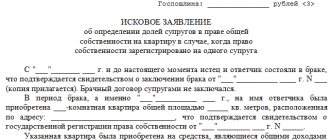Due to the specifics of my activity, I have quite a lot of advertising on the Internet about both the purchase and sale of real estate. Naturally, taking into account the amounts indicated in the ad, my phone number is a tasty morsel for all kinds of scammers (for some reason, they slightly miss the fact that I am a realtor and these objects are not my personal). Therefore, all kinds of offers of passive income, the latest cool business strategies, investments in super-duper-cool schemes are steadily pouring in as if from a cornucopia. In principle, I’m already used to it and simply ignore the next bell ringer who invites me to invest in the stock market and offers himself as the best expert in this field.
I have already written about fraud schemes in the real estate industry, most of them are already familiar to people. But there is one scheme that is set on a VERY WIDE footing! It's called a "housing cooperative."
And there are companies that have lured a very large number of people into this scheme.
Why did you choose ZhNK out of all the options?
In 2015, I inherited about 1.5 million rubles.
At that time, the daughter lived in rented apartments, and at the family council they decided to invest money in her housing. With this amount we could buy a small family on the outskirts of Kazan or a one-room apartment in the suburbs. Neither option suited us. We couldn’t get a mortgage because my husband and I are both freelancers, we work under civil law contracts (CLA) with different customers, and we don’t have a permanent job. My daughter just got a new job, so she couldn’t count on a mortgage either. We didn’t want to delay the purchase - in a year, due to inflation, this money would not be enough for even half of a one-room apartment - so we turned to a realtor. We agreed that he would monitor advertisements for sale, and if an inexpensive apartment appeared, he would immediately inform us. The realtor warned that the amount was small and finding a suitable option would be difficult. He suggested that we consider buying an apartment in installments through a housing and savings cooperative: there is no overpayment for interest and documents from work are not needed.
Fraud scheme in simple words
For those who are not very versed or do not want to understand the legal intricacies, I will explain it at a glance.
In our country, the rights of pledge and foreclosure on pledged property are registered at the state level. If you buy an apartment with a mortgage, the mortgage is registered with the Federal Registration Service! Further alienation of the property is possible only with the consent of the mortgagee!
If you buy a car on a car loan, the pledge is registered at the notary office.
Why this educational program? Remember, I asked the question why the owner of the cooperative cannot sell all the apartments without the consent of all shareholders?
Now ask yourself, how can the state find out that the owner of the apartment is actually a person and not a Housing Cooperative? The department of the Federal Registration Service has a purchase and sale agreement with a legal entity, there is an extract from the Unified State Register of Real Estate, confirming that the housing cooperative is the owner of this property - and that’s all! At the level of a government body, an individual (shareholder) does not appear at all. Legally it does not exist!
The government agency knows nothing about your internal agreement between you and the housing complex! He does not have the slightest reason to refuse the housing cooperative to sell the property belonging to him.
But for some reason people don’t think about such legal consequences... They believe brochures, posters, stories about thousands of happy apartment owners.
And those luring people into this pyramid repeat like a mantra that the organization has passed inspections by the Central Bank, the Ministry of Finance, Roskomnadzor, the FSB, the Ministry of Emergency Situations, the Ministry of Health, the Ministry of Fuel and Energy and all other ministries and departments according to 86 parameters, and no signs of a pyramid have been identified!
I wonder if the blessing of the Shaolin monks is not on the list of permits?..
How does ZhNK work?
I had a general idea of how a cooperative works. Members of the cooperative contribute a certain amount monthly to the common pot, and with this money they buy housing first for one member of the cooperative, then for the second, third, and then in turn. But there were still many questions, and I went with my husband to the first meeting with the manager of the ZhNK.
Kazan ZhNK works on the basis of a local developer and sells apartments only from this developer. You can choose any apartment: one-, two- or three-room. To join the cooperative, you need to pay an entrance fee of 10 thousand rubles. While you remain a member of the cooperative, you pay membership fees of 1 thousand rubles per month.
ZhNK has two accounts. One receives membership and entrance fees; the cooperative spends this money on its needs: employee salaries, taxes, rent, and business needs. The second account receives the initial and monthly payments for the apartment. This account is called a mutual fund. The cooperative can spend money from the mutual fund only on the purchase of housing and nothing else.
The minimum amount of the initial contribution to the mutual fund is 30% of the cost of housing. If the shareholder has contributed 30%, the cooperative reserves an apartment for him from the developer, and it is removed from sale. In order for a housing cooperative to buy housing for a shareholder, you need to contribute at least 50% of the cost of the apartment. After purchasing the apartment, the shareholder continues to pay shares and membership fees until he pays the entire cost. In November 2015, when I joined the cooperative, installment plans could be issued for 10 years, but now the period has been reduced to 7 years.
The Central Bank, tax authorities and shareholders monitor the targeted spending of funds. Every year, an independent auditing company checks the financial documents of the cooperative and draws up a report: how much money went into the accounts of housing cooperatives, where it was spent, how many apartments were purchased, whether the cooperative has debts to shareholders or other creditors. The cooperative sends the auditors' report to the Central Bank, the tax service and posts it on its website. Anyone can download the report and look at it themselves or show it to a specialist.
When a shareholder joins a ZhNK, the shareholder’s last name, first name, patronymic, his INN are entered into the Unified State Register of Legal Entities (USRLE), and the number and date when changes were made to the Unified State Register of Legal Entities are indicated. These changes are registered with the tax office. Extract from the Unified State Register of Legal Entities and check whether information about you is included.
How to choose a housing cooperative?
There are many housing construction cooperatives, but as a developer, you also need to choose the right one.
Four factors to pay attention to:
- general legal information - date and place of registration, Unified State Register of Legal Entities, records in the Central Bank. This data can be obtained from the Federal Tax Service, it is not publicly available;
- internal documents - charter, rights and obligations of shareholders, maybe even a standard agreement. These are documents of the cooperative; they are not publicly available, but upon your request they are required to provide them;
- reputation on the Internet - reviews, website, perhaps there are company pages on social networks. It is better to look for reviews on thematic forums or in social network groups, since they can be custom-made on the website;
- cooperation with banks - will it be possible to get a mortgage? If yes, then in which banks, under what conditions.
It’s a good idea to choose a housing cooperative based on a personal recommendation. For example, one of your loved ones has already rented an apartment there, there were no problems, so you can take note.
How is the cost of an apartment calculated?
I know about two types of ZhNK. Some cooperatives give shareholders loans in installments at 2–3% per annum. All calculations are the same as in a mortgage, only the interest rate is low. An attractive scheme works in a stable housing market. If the cost of an apartment rises by 4% or more, housing and communal services begin to operate at a loss. The second cooperatives give in installments not money, but square meters. Our cooperative belongs to the second type, and I will tell you, using the example of my apartment, how the cost of the monthly contribution is calculated.
We chose a one-room apartment with an area of 34.51 m2. In order for the cooperative to buy the apartment from the developer, I need to pay half, that is, 17,255 m2. The cooperative divides the remaining 17,255 m2 into 120 months of installments. It turns out that every month I need to contribute money for a share contribution for 0.144 m2. While the house is being built, the price is set by the developer, and after the house is delivered - by an independent appraisal company.
This is what the calculations of the monthly contribution look like in the shareholder’s “Personal Account”
Interest rate
The interest rate on mortgages from banks is on average 10-15%, and the overpayment, depending on the loan term, can be 80-300%, while the housing cooperative offers conditions with zero installments.
“A housing cooperative is a non-profit organization, not a credit organization; it does not have the goal of generating income and profit. Its only statutory goal is to improve the living conditions of shareholders, therefore the housing complex does not charge any interest on the money provided by the cooperative.
The only expenses of the shareholder are the costs associated with the procedure for purchasing an apartment (legal expertise, state fees, notary services) and targeted contributions necessary for the maintenance of the organization itself: marketing expenses, salaries of full-time employees, office rent, etc. Overpayment even with taking into account all these contributions for the shareholder will be from 3 to 30% of the cost of the property,” explains Ilya Kudryashov, consultant and shareholder of the Best Way housing cooperative.
How it really happened
At first, we wanted to spend all the money we inherited on a down payment, and our daughter would pay monthly payments from her salary. But for a whole year, while the house was being built, my daughter would have to pay, in addition to the share contributions, for the rent of the apartment. Not counting other mandatory expenses, she would spend more than 30 thousand rubles on housing alone. Therefore, we decided to buy a minimum 50% of the area, and from the remaining money to pay monthly installments for a year and a half. During this time, the house will be rented out, my daughter will renovate the apartment, move into it, and there will be no rental costs.
To join a cooperative, a passport and TIN certificate are enough. I wrote an application to join the housing cooperative, signed an apartment reservation agreement and received details for paying entrance, membership and share fees. ZhNK does not accept cash; all payments are made only through the bank.
In the application for joining the housing cooperative, I indicated the parameters of the selected apartment and its cost
When I signed the documents, the developer’s price was 64,600 rubles per square meter, and the down payment was 1,114,673 rubles. I didn’t delay in paying. The next day I went to the bank, but it turned out that on that day the developer raised the price by 760 rubles per square meter. My payment was enough to buy 17.0544 m2, and I still owed 17.4556 m2.
While the house was being built, the developer increased the price six more times, but this did not greatly affect the monthly payment. For example, I buy 0.144 m2 per month. If the price of a meter is 64,600 rubles, then the payment is 9,302.4 rubles; if the price is 67,742 ₽, then you need to deposit 9,754.85 ₽.
After the building is completed, apartments are revalued every three months. The appraisal company focuses on the location of the house and the average market value. If the price of real estate falls in the market, then the share contribution is reduced. But in fact, the price is constantly rising. For 2021, the increase in price amounted to 3175 rubles per square meter, and the monthly payment increased by 457 rubles.
The house has underground parking, so you can access the courtyard by stairs or elevator
Overpayment
The main benefit of purchasing an apartment through a residential complex is the overpayment, which is several times less compared to a mortgage.
For example, let’s compare the overpayment for residential complexes and mortgages under general conditions: the cost of the apartment is 5,000,000 rubles, down payment 35% = 1,750,000 rubles, debt repayment period is 10 years.
In the case of a mortgage at a rate of 12%, the overpayment will be 2,345,300 rubles (46.9%), the monthly payment will be 46,600 rubles. Plus property tax and life insurance for the borrower and the apartment itself.
In residential complexes, the entire overpayment will be 510,000 rubles (10.2%), and the monthly payment will be 29,100 rubles.
The difference in overpayment in this case will be 1,835,300 rubles.
“Is it worth waiting in line for six months, but saving 1.8 million rubles for yourself, your children, your family? Should I spend it on a vacation at the seaside, on a good renovation, on the education of children, on another apartment or for investing in old age?
How is the apartment documented?
The developer, as promised, completed the house within a year, and we were invited to accept the apartment. The procedure is the same as for equity holders: the owner and the foreman inspect the apartment. If there are no complaints, the owner signs the apartment acceptance certificate. If there are any comments, the owner writes a complaint in the report. The foreman estimates how much time is needed to eliminate the defect and sets another day for a re-inspection. There were no serious deficiencies in our apartment; we only asked to replace the handle on one window. The workers changed the handle right in front of us, and we signed the document.
A month later we received the keys to the apartment. I myself or my family members can register in the apartment and live in it. But until I pay the money in full, the apartment remains the property of the cooperative, so ownership is registered with the housing cooperative. The cooperative is a legal entity, and the state duty is 22,000 rubles. I paid this money when the cooperative registered the apartment after the house was handed over. When I pay off my debt to the cooperative, the apartment will be re-registered in my name, and I will have to pay the state fee again, but only 2000 ₽ for a private person.
We received the keys to the apartment
What difficulties may arise and how can they be solved?
Now I have to buy a little more than 10 square meters from the cooperative or pay 774,260 rubles at prices for January 2020. Over four years, our family’s financial situation has improved: our daughter works abroad, my husband and I began to earn 2 times more. Therefore, we are not afraid of a sharp jump in real estate prices. Even if the minimum payment doubles, it will not be burdensome for us. The apartment is currently empty, but if necessary we can rent it out. Rent money can be used to cover monthly payments.
A much greater danger is the bankruptcy of the cooperative. The apartment remains the property of the housing cooperative; in the event of bankruptcy, it will be sold to pay off debts. By law, shareholders are fifth-degree creditors, so I’m unlikely to receive the full amount of money paid into the mutual fund.
So far the cooperative has not raised any concerns. It is developing successfully and attracting new shareholders. If alarming facts appear, I will take out a consumer loan, pay off the debt to the cooperative and transfer the apartment to myself.
Required documents
Consultant at the housing cooperative "Best Way"
Ilya Kudryashov
Office address in Krasnoyarsk: st. Maerchaka, 38, of. 813 Tel.: (391) 2-783-583
To obtain a mortgage, you will have to collect an impressive stack of documents, including mandatory proof of income. The bank will consider them from 3 days to 2 weeks. Based on the results of all checks, you may be denied a loan without explaining the reasons. In this case, the document review service may be paid.
In the case of residential complexes, your credit history, your official income, citizenship do not matter at all, because the relationship between shareholders and residential complexes is determined by the Housing Code of the Russian Federation, and the object is owned by the residential complex, but is encumbered by the shareholder.
What happens if the shareholder delays the next payment?
The order of obtaining an apartment for such a member is changing (Part 5 of Article 28 of the Law on Housing and Housing Communities). In case of systematic violation of the payment schedule (more than three times during the year) or after one delay of more than three months, the shareholder may be expelled from the cooperative (Articles 8 and 9 of the Law on Housing and Communal Services). If the debtor has already been given an apartment for use, he will have to vacate it within two months.
A member expelled from a cooperative is required to return the value of his share. But there are no entrance and membership fees.
What is a housing cooperative?
Housing or housing-construction cooperatives were known in Soviet times, then such associations were about as popular as mortgages are now.
According to Article 110 of the Housing Code of the Russian Federation, a housing cooperative (or housing complex) is a voluntary association of citizens who use their own money to build an apartment building and then manage it.
Technically, it looks like this: there is some developer who is ready to build a house, but there is not enough or no money for it. Such a developer is hired by several citizens who give him money to build them a house.
From the outside it looks like an Equity Participation Agreement, but this is not entirely true; there are differences in these two schemes:
- legislative regulation: housing cooperative agreements are regulated by the housing and civil codes, and DDU additionally by Federal Law No. 214;
- registration in Rosreestr: housing cooperative agreements are registered only after the entire amount for the apartment has been paid and construction has been completed, and residential building agreements must be registered immediately after signing;
- cost of housing: the housing cooperative may include a clause on revising the cost of housing at the time of completion of construction, but this is prohibited in the housing cooperative;
- payments - under a housing cooperative agreement, payments can be made after the delivery of the object, but under the DDU, everything must be paid before the object is handed over;
- legal protection: for housing cooperatives the Law on the Protection of Consumer Rights does not apply, but for DDU it does.
That is, from the legal side it turns out that the housing cooperative construction agreement has more disadvantages than advantages. And preschool education is not the safest option, and housing cooperatives are even more so.
Is it possible to use matkapital to buy an apartment through ZhNK
Yes, you can, and maternity capital can be used both as an entrance fee and as a share contribution.
To do this, you need to provide the Pension Fund:
- an extract from the register of members of the cooperative confirming membership in the housing cooperative;
- a certificate of the contributed amount of the share contribution and the remaining unpaid amount necessary to acquire ownership rights;
- a copy of the cooperative's charter;
- a notarized written obligation of a member of the cooperative to allocate a share to the child within 6 months after making the last payment.
Withdrawal from members of the cooperative
According to Art. 130 of the RF Housing Code, along with other grounds for termination of membership, there is the possibility of leaving the cooperative . In this case, the person wishing to leave must provide an application for voluntary exit . Consideration of such an application takes place in the manner established in the charter of the association.
It is worth noting that when a member leaves the organization, he is paid those contributions that he had already managed to pay by that time.
The payment procedure is also established by the charter , but the period should not exceed two months from the date of the meeting’s decision on the member’s withdrawal from the cooperative (based on the considered application).
What are the risks when buying an apartment through ZhNK
The cooperative has the right to invest in construction, so shareholders may face bankruptcy of the developer or long-term construction.
Agreements with housing cooperatives are not registered by the state, which means fraud is possible when the same apartment is given to several people.
While the apartment is being purchased, its value may rise. And the legislation does not establish a framework for indexing. To avoid a sharp increase in the cost of housing, it is worth stipulating in the contract reasonable limits for changing this indicator.
One of the most important points is that you can become a homeowner only after the share has been paid in full. Until this moment, the cooperative has only monetary obligations. If a cooperative goes bankrupt, the shareholder risks being left without housing.
In this case, the main thing for a member of the cooperative is not to miss the deadline for filing an application to include his claims (recovery of the paid share contribution) in the register of creditor claims. The shareholder has only three months to do this (a month at the observation stage and two months at the bankruptcy stage).
There are three ways to track information about a debtor’s bankruptcy:
1. Through the file cabinet of arbitration cases
To search, enter the name of the debtor or his INN or OGRN, select the arbitration court of the region where the debtor is registered. Then, using the “case filter” column, select only bankruptcy cases from the list.
2. Using the Unified Federal Register of Bankruptcy Information (EFRS)
Please provide a name.
3. Through the “bankruptcy” section on the website of the Kommersant newspaper
To search for bankruptcy announcements, enter TIN, OGRN or other company identifiers. From the date of publication in the newspaper of messages about the introduction of supervision or bankruptcy proceedings, the deadlines for presenting claims of creditors are counted.
Cooperative apartments: entrance - ruble, exit - two.
The forgotten, but very popular in Soviet times, scheme for purchasing housing through a cooperative began to be discussed again in the early 2000s. Then, through the housing cooperative (housing and construction cooperative), those who did not immediately have the full amount bought apartments. In conditions when prices were constantly rising, this method of acquiring real estate seemed reasonable, especially since it was possible not to resort to expensive bank loans, but by joining a cooperative, then, for many years, paying off the interest-free balance. However, the machinations of cooperative leaders and the subsequent series of high-profile court cases, as well as the tightening of legislation, did their job, discouraging Russians from joining housing cooperatives. However, this purchase scheme did not sink into oblivion, but declared itself with renewed vigor in 2010, after the adoption of amendments to Federal Law No. 214. Today we will tell you what a housing construction cooperative is, how it works and on what conditions, what are the rights and responsibilities of both parties and whether this scheme should be trusted.
Born in USSR
A housing construction cooperative is a voluntary association of people for the purpose of construction, reconstruction and management of an apartment building. In fact, housing cooperatives are a product of the Soviet era. The first cooperatives, according to Maria Litinetskaya, the general director, appeared in the 20s of the last century. However, already in 1937 they were eliminated as a manifestation of private property. Only 20 years later, by decision of the CPSU Central Committee, the cooperative was revived. It should be noted that at that time the housing cooperative built housing at the expense of shareholders, but at the same time received impressive loans from the state for up to 20 years and other benefits. Despite the fact that cooperative apartments were quite cheap, the share of housing cooperatives in the total volume of housing construction in the USSR did not exceed 7-8%, since in order to join the cooperative, it was necessary to stand in a long-term queue. Gradually, the attractiveness of housing cooperatives completely disappeared, primarily due to numerous scams associated with cooperatives.
Perhaps this real estate purchase scheme would have remained a relic of the past if it were not for the amendments to Federal Law No. 214 adopted in 2010. As a result, the number of developers who did not want or could not sell housing under the new letter of the law again began to resort to selling housing under participation agreements in housing cooperatives, says Sofya Lebedeva, general director. This is due to the fact that, on the one hand, housing cooperatives allow developers to bypass the law on shared participation and sell apartments before receiving a building permit, and on the other hand, they do not face any fines for delaying the construction of a facility. Now, according to data, the volume of transactions carried out under the housing cooperative scheme is about 20% in Moscow and 8% in the region.
Housing cooperative begins with the charter
Before joining a cooperative, you need to know that the legal regulation of the activities of housing cooperatives is ensured by Art. 116 of the Civil Code of the Russian Federation “Consumer cooperative”, as well as the fifth section of the Housing Code of the Russian Federation – “Housing and housing-construction cooperatives”. However, as Sofia Lebedeva notes, this legislative act contains only the most general rules regulating participation in cooperatives. Therefore, the charter of the housing cooperative and the concluded agreement are important.
How is a housing cooperative born? The decision to organize a housing cooperative is made by a meeting of founders, and virtually any person can be the founders. Thus, the Housing Code only says that “persons who wish to organize” such a cooperative have the right to participate in the meeting of founders. The decision to create a cooperative must be formalized in a protocol, and the housing cooperative itself must undergo state registration and receive a legal entity.
After this, the charter of the cooperative must be formed, which states the name of the housing cooperative, location, describes the activities of the cooperative, the procedure for joining and leaving it. The charter must contain information on the procedure for making and paying share contributions, and stipulate the responsibility of the parties in case of violation of obligations.
The reins of management of the housing cooperative belong to the meeting of members of the cooperative. They also elect the board of the cooperative, which monitors the current activities of the housing cooperative, and the audit commission, which regularly checks the financial and economic activities of the cooperative. The commission provides the report of its inspection to the general meeting of members of the cooperative in the annual report.
Easy login
Joining a housing construction cooperative is quite simple. To do this, you need to write an application for admission, which will be considered by the general meeting of members of the cooperative within a month. After receiving an affirmative decision from the moment of signing the charter and paying the entrance fee, you become a member of the housing cooperative. However, a member of the cooperative can receive a certificate of ownership of the apartment only after the share amount has been paid in full.
A member of a housing cooperative may leave the cooperative by writing a corresponding statement. If, at the time of leaving the housing cooperative, he has not fully paid his share contribution, then the amount previously paid must be returned to him. However, the terms and conditions for the return of money must be specified in the charter of the cooperative.
High risks
Like any scheme for purchasing real estate on the new buildings market, housing cooperatives have their pros and cons. Among the advantages, two can be noted. Firstly, unlike the DDU (share participation agreement), you can enter a housing cooperative at the age of 16 years. It is clear that no bank will give a mortgage loan to a 16-year-old borrower to pay the down payment on a prepaid loan. Secondly, the cost of the share can be repaid by the cooperative member over many years, without paying high interest, as is the case with a mortgage.
However, this is where the advantages of housing cooperatives end and serious disadvantages begin. As Maria Litinetskaya notes, when purchasing an apartment using this scheme, there is a much greater risk of being left without housing or with an apartment of poor quality. For example, the expert says, the nuance is that the decision to move in a shareholder is made at a general meeting of members of the housing cooperative. In practice, this means that even if the buyer has paid the share in full, he may not receive the long-awaited apartment if the settlement for some reason was not approved by the general meeting.
In addition, unlike the DDU, the housing cooperative is not obliged to eliminate the identified shortcomings and construction defects. When purchasing through a cooperative, you can obtain a certificate of ownership only after the share amount has been paid in full. This leads to the fact that a house can be rented out, an apartment can be obtained, the buyer can live in it for several years, and at the same time he does not have the right to receive a certificate of ownership.
Another danger is that a shareholder has the right to be excluded from a housing cooperative without explanation, and this does not contradict current legislation. If a member of the cooperative did not pay the share contribution and was expelled from the housing cooperative, then his apartment may be taken away.
The shareholder also has monetary encumbrances. Firstly, everyone who is part of the housing cooperative is required to pay membership fees - entrance and monthly. Secondly, if the cooperative did not have enough funds to complete the construction of the facility, then all members of the housing cooperative are responsible for the debts of the cooperative. Thus, if the construction estimate increases, shareholders will simply have to contribute additional funds. The fact is that the agreement on participation in the housing cooperative does not always fix the final cost of the apartment. But even if it is named in the contract, the cooperative can unilaterally change it.
Your money was crying
But sometimes cooperative members face even greater problems. Thus, there are quite frequent cases in the market when cooperatives were created to carry out fraudulent schemes. In addition, the purchase of housing under construction under this scheme does not protect the buyer from double sales, since in this case the transaction is formalized through the purchase of a share with the payment of a share contribution and is confirmed only by an act issued by the housing cooperative.
In addition, when purchasing a new building, there is always a high risk of bankruptcy of the developer or non-compliance with the construction schedule, and, consequently, delays in the delivery of the project. When buying an apartment through a housing cooperative and in the event of the developer’s bankruptcy, it will be very difficult to get your money back or to achieve the resumption of construction of the house, states Maria Litinetskaya.
As we said earlier, the mutual responsibilities of the parties must be spelled out in the charter. The problem is that, in accordance with clause 113 of the Housing Code of the Russian Federation, the charter must necessarily indicate the responsibility of shareholders for late payment of contributions, but the cooperative’s obligation to its members may not be specified. Therefore, if in accordance with paragraph 2 of Art. 113 of the Housing Code of the Russian Federation, the cooperative’s charter included its responsibility to shareholders, that is, the opportunity to return money through the court. At the same time, the failed new resident will not receive any interest for the use of your funds, as in the case of a DDU. If there is no such clause in the charter, then even in court it will be almost impossible to return the contributed share.
The actions of housing cooperatives, of course, are regulated by law, and when selling housing under construction under this scheme, the developer acts within the framework of the law. However, Sofya Lebedeva warns that when purchasing an apartment through a cooperative, the buyer is legally protected much worse than someone who buys housing under a DDU concluded in accordance with Federal Law No. 214 and even in some aspects worse than under a preliminary or investment contract.









